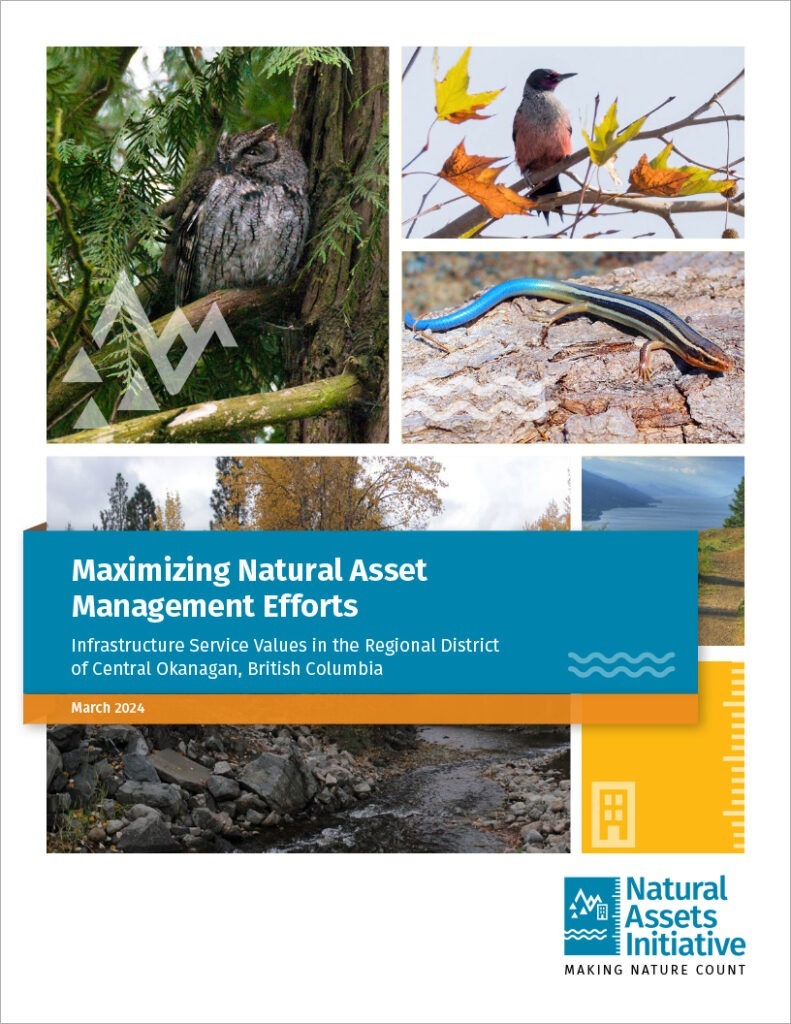The Regional District of Central Okanagan (population ~222,162) includes the two unincorporated Electoral Areas of Central Okanagan East and Central Okanagan West, along with the member municipalities of the City of Kelowna, the District of Lake Country, the District of Peachland and City of West Kelowna. It is located on the unceded territory of the Sylix Okanagan people and encompasses Westbank First Nation IR#8, #9, #10, #11 & #12, as well as Okanagan Indian Band IR#7.
The RDCO recognizes the need for an inventory and corresponding efforts to determine the service value of natural assets to limit their loss, and associated risks. The inventory will also link to environmental priorities in the RDCO’s Strategic Priorities Plan and Regional Growth Strategy.
Following the species at risk 2021 pilot, NAI worked with the RDCO to maximize their natural asset management efforts by identifying and prioritizing management actions related to natural assets that benefit species at risk (SAR), critical habitat (CH) and the provision of core local government services.
It was decided by the Project Partners that it was preferable to focus outcomes on ecosystems at risk (versus SAR). To advance these actions, the Project established priority ecosystem services for the RDCO; three management actions were analyzed using policy considerations and a cost-benefit analysis:
- Park acquisition to increase ecosystem connectivity
- Tax incentives for the preservation of natural assets on farmland
- Acquisition of threatened or at-risk ecosystems
Results of the cost-benefit analysis revealed that the benefits derived from the actions outweighed the costs of taking the actions. The management actions resulted in significant benefits in the provision of fresh water, water regulation and SAR/CH along with carbon sequestration and storage. SAR/CH was the most significant benefit realized, often showing results 4 to 10-fold higher than other individual ecosystem service net benefits. These results are by no means exhaustive but provide a strong business case for continuing to implement and refine this effort in other contexts.



